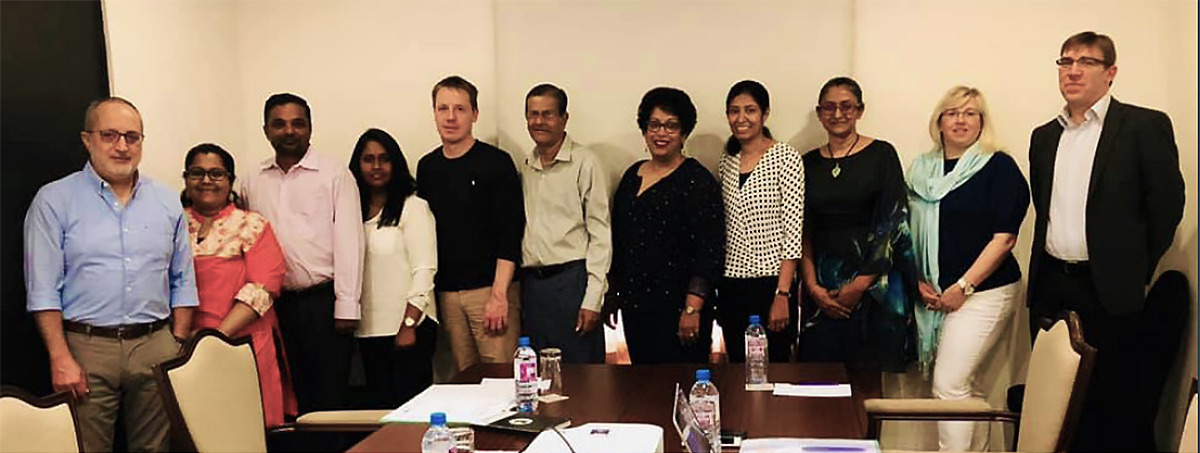A summary of the findings from the international REGARD (REbuildinG AfteR Displacement) project has been published in a report led by the University's award-winning Global Disaster Resilience Centre (GDRC)
A COLLABORATIVE research project led by the University of Huddersfield's Global Disaster Resilience Centre and entitled REGARD (REbuildinG AfteR Displacement), set out to investigate the role of built environment in the context of displacement. Now, a final project report has been published and presents a summary of the findings from this international project.
The REGARD project, co-funded by EU Erasmus+ Strategic Partnerships programme, was launched in September 2018 with an aim to develop competencies in rebuilding communities following a disaster and conflict-induced mass displacements from the perspective of the built environment.
The project consortium consisted of five international universities from four different countries and was led by the University of Huddersfield's Professor Dilanthi Amaratunga, Professor Richard Haigh and Dr Chamindi Malalgoda. The team also included experts from Sweden's Lund University, the University of Central Lancashire, UK, Estonia's Tallinn University of Technology and the University of Colombo in Sri Lanka.
 Pictured above are representatives from the five institutions involved in the REGARD project
Pictured above are representatives from the five institutions involved in the REGARD project "Displacement is one of the most pressing challenges faced by society today," said Professor Dilanthi Amaratunga, co-director of the University's Global Disaster Resilience Centre.
"For example," she added, "the sudden exodus of Ukrainian refugees is at a scale not seen in Europe since World War II and has prompted a swift international and regional response, however, as this momentum is unlikely to sustain itself, there are long term challenges to be addressed.
"Our work could help to support efforts that balance the needs of both refugees and host communities," she said.
Supporting the rebuild of communities
On achieving the aim of the project, the REGARD research team produced several outputs to support the rebuilding of communities following a disaster and conflict-induced mass displacement:
- Explored and analysed the needs of displaced and host communities
- Investigated the role of the built environment in enhancing the social cohesion between host and displaced communities
- Guidance notes were developed with recommendations on best practices of rebuilding host and displaced communities
- A competency framework was constructed for built environment professionals to address the needs of the host and displaced communities
- Several online training courses have been developed (MOOCs - Massive Open On-line Courses) on a knowledge hub platform to develop the competencies of the professionals who are working in the displacement context. They address topics such as mass displacement and the built environment, planning and design for mass displacement, and construction and facilities management for mass displacement
- Course handbooks and training materials (OERs) were produced for these courses
- A professional competence audit of built environment professional bodies
- A policy report with recommendations for built environment professional bodies in upgrading the professional competencies is now available and can be viewed online.
The final report published on the REGARD project titled, "A built environment perspective on post-disaster and conflict-induced displacement," presents a detailed summary of the outputs mentioned above and can be accessed via the report pictured below.






